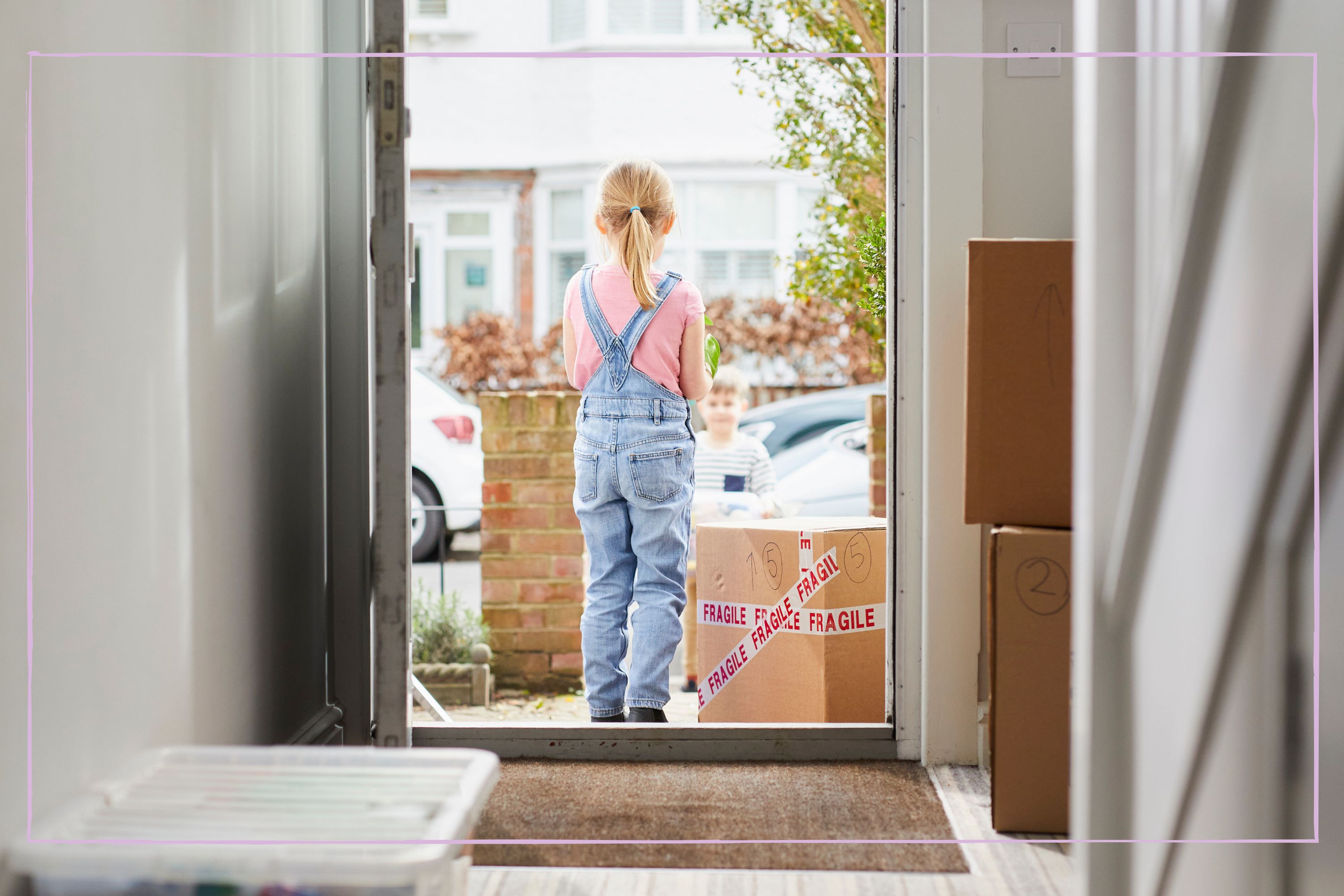5 traits adults who moved a lot as kids have, and psychologists explain the pros and cons
The 'disruptive' nature of constantly moving home can leave a lasting impacting on children

Psychologists have revealed the 5 traits adults who moved house a lot as kids likely have developed in adulthood - and there are pros as well as cons to the experience.
Leaving the house with a toddler, or a child of any age really, can be one of the most stressful experiences of parenthood. It may sound like a stretch to those without children, but research has shown that getting a toddler out the house on time is more stressful than getting stuck in a lift. So what about moving house with young children?
It may feel impossible to have a stress-free house move with kids, but it's not just parents who are affected by the ordeal. According to a psychologist, moving house as little as just once in childhood can leave children to develop differing traits to those who lived their entire lives in one family home - but there are pros as well as cons to the experience.
"Moving homes is undoubtedly disruptive," psychologist Dr. Daniel Kessler told Parade. "Daily routines are interrupted, friendships are affected by distance and everything feels new."
This new feeling leads kids to develop some great traits, namely 'adaptability.' According to licensed psychologist Dr. Joel Frank, "Frequent changes in the environment teach them to adjust to new situations swiftly," with kids learning early on to handle change well.
Resilience is another key trait these moves may instil in kids, which is great news for parents wanting to raise resilient children. "The ability to be resilient may also look like the ability to 'read a room' quickly to adapt socially or make less assumptions if people have moved all over the country or world and learned to live in many places," says psychologist Dr. Peggy Loo, Ph.D.
Moves can also foster an increased openness to new experiences, says another psychologist, Dr. Connally Barry. "Openness to experiences is higher in children who moved. This indicates greater intellectual curiosity, creativity and awareness of their own feelings. They are less inclined to resist new ideas."
Parenting advice, hot topics, best buys and family finance tips delivered straight to your inbox.
But this isn't always the case as Stephanie Lowe, GoodTo.com's family editor, revealed. "I grew up in the army and back in the 90s you were 'posted' so we moved, every two to three years," she told us.
"I would disagree that it made me 'open to new experiences.' Instead, it made me crave consistency and routine as the only 'same' thing in my childhood was my nan's house, it always looked and smelled the same. I can smell it now; a mixture of lavender, mothballs and Nivea creme."
The experts agree that there are also downsides to moving and say that negative traits can also develop in kids as they grow into adults. "Children who have moved likely experience increased irritability and stress and are less capable of making meaningful relationships with peers beyond superficial connections," Dr. Barry says.
Dr. Loo agrees, adding, "As adults, children who moved frequently may be more prone to social anxiety or struggle to deepen friendships or relationships, either because they worry they may be short-lived or have had less experience managing long-term relationships."
She further explained, "They may be more conflict-avoidant so as to not rock the boat with others or prone to people pleasing to maintain smooth connections. I think there's a lot of potential for unresolved grief if a childhood move was abrupt and there was little room for processing."
Stephanie felt this first hand, telling GoodTo.com, "I am a people pleaser now and I never thought it came from me moving a lot as a child, but now I get it. It probably fed into it as I didn't know how long I'd have that friend for, so I wanted it to be nice and smooth as possible."
Many of our experiences in childhood influence who we become when we reach adulthood. From the core memories that shape who we are to the parenting styles our parents relied on to help raise successful children or raise happy children - whatever it was they aimed to do! But it's clear that many millennial parents especially want to change the narrative of their childhoods and are implementing rules that prove they’re determined not to make the same mistakes their own parents did.
Charlie Elizabeth Culverhouse is a news writer for Goodtoknow, specialising in family content. She began her freelance journalism career after graduating from Nottingham Trent University with an MA in Magazine Journalism, receiving an NCTJ diploma, and earning a First Class BA (Hons) in Journalism at the British and Irish Modern Music Institute. She has also worked with BBC Good Food and The Independent.